SC halts IHC proceedings in audio leaks case
Bench accepts govt plea against June 25 order
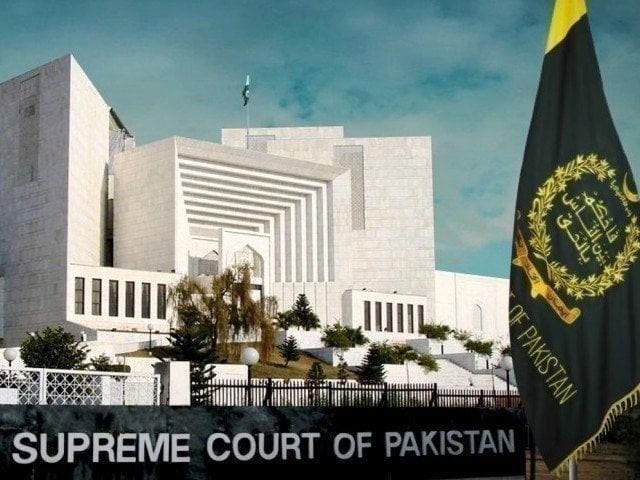
The Supreme Court has halted the Islamabad High Court's (IHC) proceedings in the audio leaks case while also suspending its order in which the capital's high court had initiated contempt proceedings against key officials of the telecom regulator.
A division bench comprising Justice Aminuddin Khan and Justice Naeem Akhtar Afghan on Monday admitted a government petition challenging the IHC's June 25 order issued by Justice Babar Sattar.
Last year, Justice Babar Sattar had initiated proceedings against surveillance of private citizens' phone calls based on two separate petitions filed respectively by Bushra Bibi, the wife of former prime minister Imran Khan, and Najamus Saqib, the son of former chief justice Saqib Nisar against their allegedly leaked phone calls.
While Bushra's alleged telephone conversation was related to disposal of Toshakhana gifts, Najamus Saqib could be heard in the allegedly leaked audio seeking his "share" from a politician for helping him get the PTI's party ticket through the influence of his father.
The last National Assembly had formed a special committee to look into the PTI party ticket scandal and summoned the former CJ's son and some other people. Najamus Saqib had approached the IHC against the NA special committee notice, which the IHC had later suspended.
At the June 25 hearing of the case, the IHC had issued show-cause notices to the Pakistan Telecommunication Authority (PTA) chairman and its members for misrepresenting facts regarding the Lawful Intercept Management System in "an attempt to divert the course of justice."
The order had noted that the government had granted no permission under the Telegraph Act or the Telecom Act to any agencysecurity or intelligenceor person to record audio calls or surveil citizens.
"The federal government, as well as law enforcement and intelligence agencies across Pakistan, have never once sought a warrant for surveillance under provisions of the Fair Trial Act.
"[However,] a mass citizen surveillance system in the form of a Lawful Intercept Management System has been installed at the expense of Telecom Licensees [companies] on direction of the PTA at a Surveillance Center designated by the PTA, for use by designated agencies."
The order noted that, through this system, the agencies can surveil the telephone calls of 4 million citizens at any given time while the system also provides designated agencies access to the audio and video data of citizens through the networks of telecom companies.
"The Lawful Intercept Management System has been installed and is being operated without any backing of law. Those who are using and/or enabling the use of the system may have rendered themselves liable to criminal liability under provisions of the Fair Trial Act, Telecom Act, Prevention of Electronic Media Crimes Act (PECA), Telegraph Act, and Pakistan Penal Code," it said.
Challenging the order in the Supreme Court, Additional Attorney General Amir Rehman argued that the IHC exceeded its jurisdiction under Article 199 as according to two Supreme Court rulings, a high court cannot take suo motu notice. He added that the five questions raised during the IHC hearing on May 31 were not related to the petitioners' case.
"In its May 29 order, the IHC prohibited authorities from phone tapping. As a result, intelligence agencies are unable to carry out counter-intelligence activities, and it has become difficult to apprehend any terrorists. The ISI [Inter-Services Intelligence] and the IB [Intelligence Bureau] have been barred from phone tapping and even from accessing Call Data Records (CDRs)," he said.
During the hearing, Justice Aminuddin Khan inquired whether the IHC had determined who was recording citizens' phone calls. The additional attorney general replied that this has not yet been determined and that the investigation is ongoing.
Justice Naeem Akhtar Afghan remarked, "Unfortunately, no one in this country wants to reach the truth. An inquiry commission was formed to uncover the truth, but it was stayed by the Supreme Court.
"The audio leaks case has not been scheduled again in the Supreme Court, and when parliament tried to uncover the truth, it was also stopped. If neither parliament is allowed to function nor the courts, how will the truth ever come to light?"
The last PML-N government had also formed a judicial commission led by Justice Qazi Faez Isa, who was then the senior puisne judge, to probe the audio leaks. However, a Supreme Court bench led by former chief justice Umar Ata Bandial stayed the proceedings of that commission on May 26, 2023.
Justice Khan asked if it was not possible that the petitioners had themselves leaked the audio. "Has this aspect been considered? Nowadays, every mobile phone has a recording system," he added.
The court order stated that the IHC's May 29, 2024 ruling was reviewed, and it was decided that the order would not be extended in the next judicial proceedings. "Since the May 29 ruling by the IHC was not extended, there is no need to suspend the order," it said. The court later adjourned indefinitely.

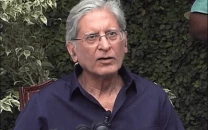

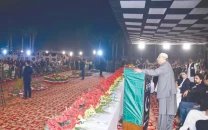
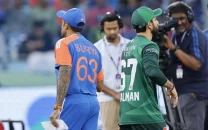
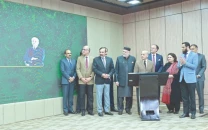
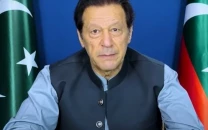












COMMENTS
Comments are moderated and generally will be posted if they are on-topic and not abusive.
For more information, please see our Comments FAQ